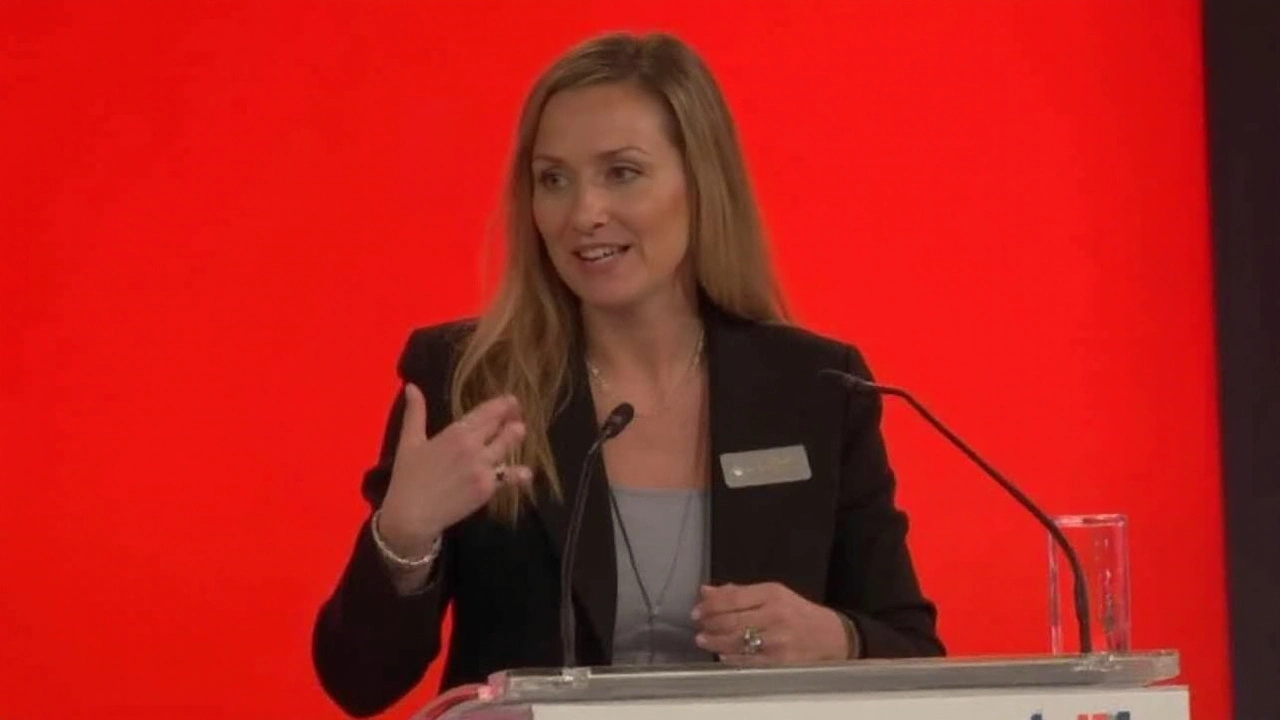
Starmer’s rapid reshuffle after Rayner’s exit
Downing Street moved at speed. Within hours of Angela Rayner resigning over a breach of the ministerial code tied to stamp duty on her £800,000 Hove flat, Sir Keir Starmer installed David Lammy as deputy prime minister, handed him the justice brief and the ancient office of Lord Chancellor, and set off a chain of changes across a dozen cabinet jobs.
Rayner’s fall was triggered by the findings of ethics adviser Sir Laurie Magnus, who concluded she breached the code after underpaying stamp duty. In her resignation letter, Rayner said she “deeply regretted” not seeking specialist tax advice and took full responsibility. She also stepped down as Labour’s deputy leader, a major political moment that clears the way for a party contest to replace her.
Lammy’s rise is one of the most striking outcomes. The Tottenham MP, first elected in 2000 at age 27, studied law at SOAS and Harvard, was called to the Bar in 1994, served as a minister between 2001 and 2010, and joined the Privy Council in 2008. Until now he was foreign secretary, a post he used to reset relations with European partners and to push for careful diplomacy in the Middle East, including meetings with families of hostages in Gaza.
With Lammy shifting to the Ministry of Justice, Yvette Cooper moves from the Home Office to the Foreign Office, an unusual pivot that puts a seasoned domestic operator at the helm of UK diplomacy. Shabana Mahmood, who had been justice secretary, becomes home secretary. The trio swap reflects Starmer’s push to keep experienced hands in the “great offices of state” while keeping control of his policy timetable.
The reshuffle is the most extensive since Labour took office. It follows weeks of pressure on Rayner and heightens the stakes for Starmer’s programme as the government tries to push through reforms on the economy, housing, public services and Britain’s place in the world—all while avoiding the drag of a prolonged ethics row.
- Deputy Prime Minister, Justice Secretary and Lord Chancellor: David Lammy (moved from Foreign Secretary)
- Foreign Secretary: Yvette Cooper (moved from Home Secretary)
- Home Secretary: Shabana Mahmood (moved from Justice Secretary)
- Chancellor of the Duchy of Lancaster and Chief Secretary to the Treasury: Darren Jones (retains Treasury role, adds CDL)
- Housing Secretary: Steve Reed (replaces Angela Rayner)
- Work and Pensions Secretary: Pat McFadden
- Business Secretary: Peter Kyle
- Science Secretary: Liz Kendall
- Environment Secretary: Emma Reynolds
- Scotland Secretary: Douglas Alexander (replaces Ian Murray, who voiced “huge disappointment” at his removal)
- Leader of the House of Commons: Sir Alan Campbell (replaces Lucy Powell, who was sacked)
- Chief Whip: Jonathan Reynolds
- Chancellor of the Exchequer: Rachel Reeves (unchanged)
Two points jump out. First, continuity at the Treasury—Rachel Reeves stays, and Darren Jones keeps his day-to-day Treasury brief while adding the Cabinet Office’s heavyweight CDL post—signals the government wants no doubts about its fiscal direction. Second, moving Cooper to foreign affairs and Mahmood to the Home Office pairs experience with a tough delivery role at a department where crises rarely wait.
Rayner’s exit matters both in government and at party level. In Whitehall, her housing brief passes to Steve Reed just as the government attempts to turn planning reform headlines into spades in the ground. Within Labour, her resignation as deputy leader opens a contest that will shape the party’s tone and organisation heading into the next phase of the parliament. Allies insist Rayner remains a major force; former deputy Labour leader Baroness Harriet Harman even suggested there could be a way back for her, arguing Rayner’s support in the party remains substantial.
The ministerial code breach came down to tax. Stamp duty land tax can get complicated—rates differ for additional properties and thresholds matter. Magnus’s judgment was that ministers are ultimately responsible for getting it right. Rayner accepted the finding, apologised, and quit before the row could overshadow the government’s autumn agenda.

What the new line-up signals
At Justice, Lammy inherits stacked in-trays: court backlogs, prison capacity, legal aid pressures, and a probation system still under strain. Expect early signals on clearing the crown court logjam—more sitting days, continued use of Nightingale courts where possible, and a push for digital case management. On prisons, the focus will be balancing public protection with capacity, including the pace of new-build projects and community sentencing options for non-violent offenders.
Yvette Cooper’s move to the Foreign Office is a bet on statecraft over showmanship. Her immediate priorities: rebuild the UK’s working relationship with the EU, especially on security and research; maintain a hard line on Russia’s war in Ukraine alongside European and US partners; and keep a steady hand on sensitive Middle East diplomacy. Cooper brings a detail-first reputation from the Home Office and Treasury Select Committee days, which could serve her in complex negotiations.
Shabana Mahmood arrives at the Home Office with a prosecutor’s eye—she is a barrister by training—and will be judged on delivery: managing small boat crossings, processing the asylum backlog faster, tackling serious and organised crime, and rebuilding public confidence in policing. She also takes on the constant Home Office firefight: counter-terror work and a national conversation about safe streets and trust in the police.
Housing is where voters feel change—or the lack of it—most immediately. Steve Reed gets a politically hot brief: planning reform, housing supply, and rental market rules. Watch for clarity on targets, tools to unlock brownfield sites, and how the government plans to speed up local plan approvals without lighting political fires in town halls.
At Work and Pensions, Pat McFadden steers a department that touches millions of lives daily. Two immediate tests: getting more people back into work and managing disability assessments with more consistency and less delay. Any shift here has real fiscal and social impact, which is why Treasury and DWP coordination will be tight.
Peter Kyle at Business faces the growth question: how to lift investment and productivity. Expect focus on industrial strategy, grid connections and planning for energy projects, and smoothing the path for advanced manufacturing. Liz Kendall at Science ties into that same growth story—research funding certainty, spinning innovation out of universities, and making the UK a predictable home for AI, life sciences and clean tech.
Emma Reynolds at Environment will need to align environmental goals with planning and energy security. That means clarity on agricultural support, clean water enforcement, and nature targets. The test is practical delivery, not just ambition on paper.
Douglas Alexander’s return as Scotland Secretary signals a desire to reset relations with Edinburgh while defusing constitutional noise. He brings long experience in UK and international politics. The job is partly political diplomacy: keeping cross-government work with the Scottish Government on track, even when arguments get loud.
Inside the machine, Darren Jones taking the Chancellor of the Duchy of Lancaster role matters. CDL is the cabinet’s fixer seat—crisis response, cross-department coordination, procurement reform, and delivery tracking. Jones keeping the Chief Secretary brief while adding CDL ties budgets to delivery in a way No 10 hopes will reduce drift between plans and outcomes.
Not everyone lands softly in reshuffles. Ian Murray’s “huge disappointment” at being removed as Scotland Secretary shows the human edge of these choices. Lucy Powell’s exit as Commons leader underlines that Starmer is ready to move even well-known frontbenchers to reset his top table.
Politics does not pause for personnel changes. The Commons leader switch to Sir Alan Campbell will matter when the government lines up debate time for big bills. Jonathan Reynolds as chief whip is there to count noses and keep discipline when votes get tight.
Markets and voters tend to judge reshuffles by what happens next. For Starmer, the immediate aim is stability after an ethics storm and a re-energised push on delivery. For ministers, it is about early, tangible steps: court hearings scheduled and cleared, asylum decisions processed, housing sites unlocked, research partnerships signed, and cleaner rivers measured in water tests, not press releases.
As for Rayner, allies and critics will watch whether she returns to frontline politics after a spell out of government. Baroness Harman’s suggestion there is a path back reflects a view in parts of Labour that competence and contrition can repair reputations. That, though, depends on events—always the final editor of British politics.
The bigger picture is simple enough: a government trying to prove it can move fast, fix problems, and survive its own shocks. Starmer’s cabinet now has clear mandates and fewer excuses. Delivery, not titles, will decide whether this reshuffle lands as a reset or just another headline.